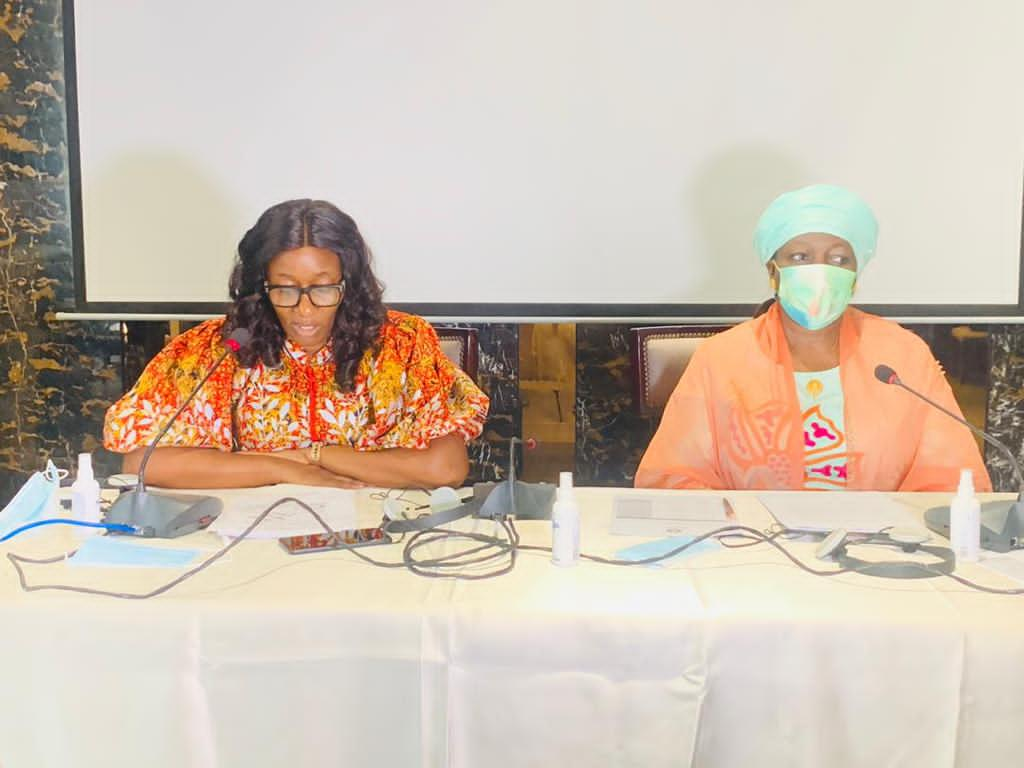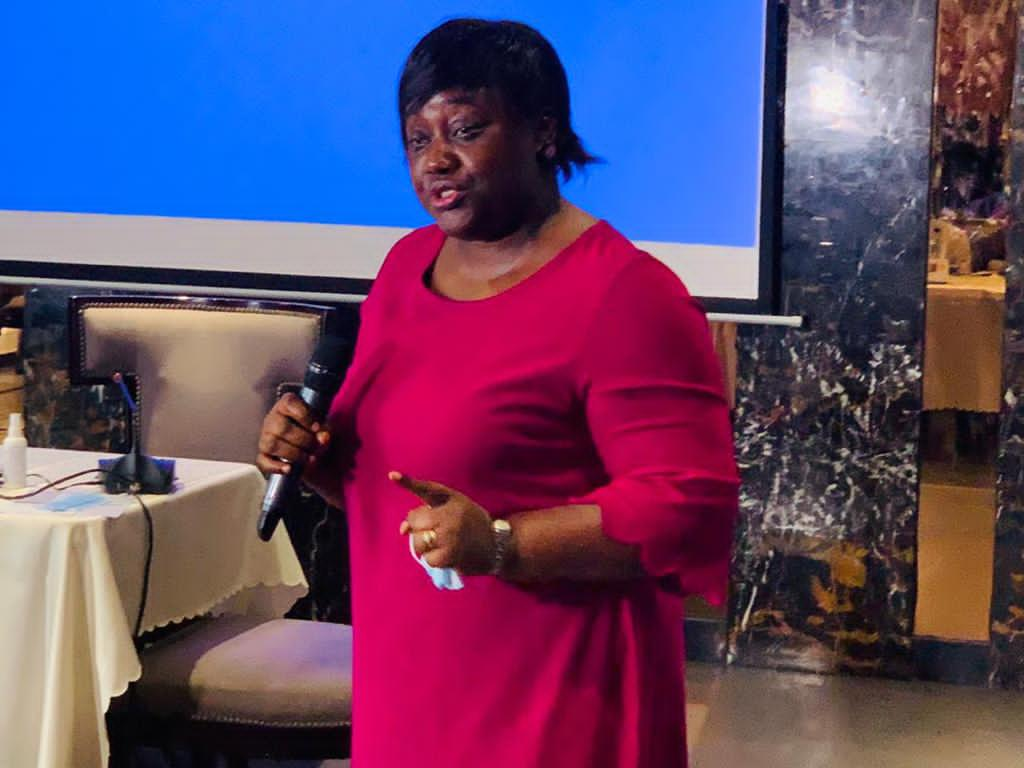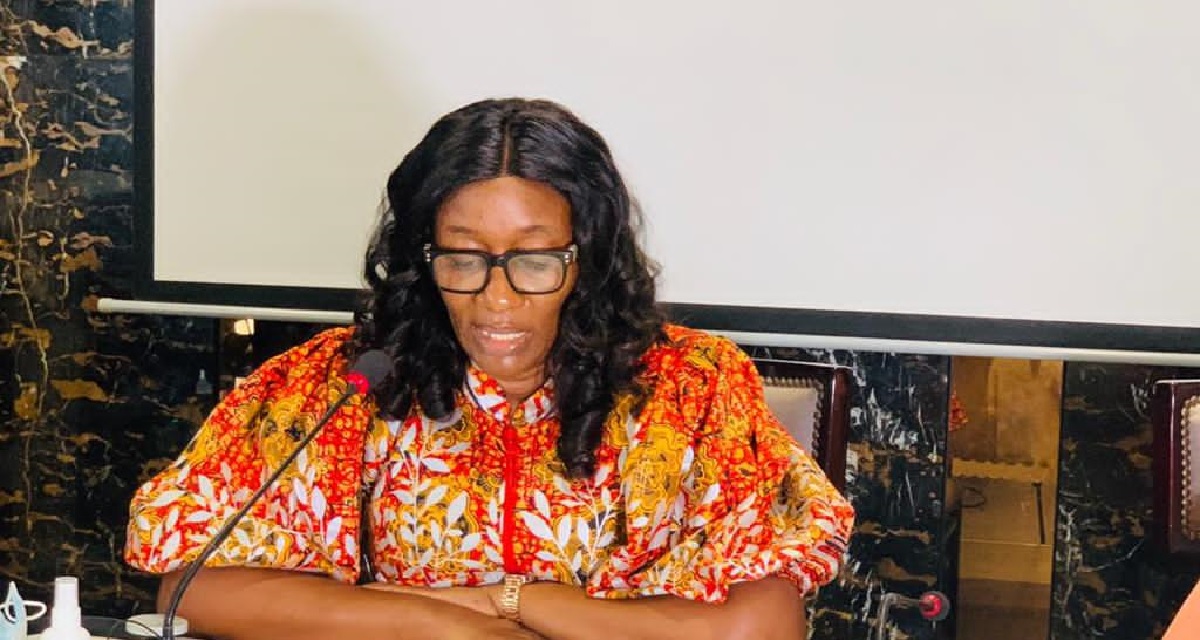The ECOWAS Commission has commenced a 5-day training on Monitoring and Evaluation for Staff of the National Centre for the Coordination of Response Mechanism (NCCRM) in addition to 3 other trainings (Human Capacity Development Focal Points Training, Programme Management Training for National Planning and M&E Experts, and ECOWAS Gender Transformative Human Capacity Development Conference) already held over the last ten days in Sierra Leone, West Africa.
The training, which targets officials from Member States, is being hosted at the Atlantic Lumley Hotel in Freetown. It seeks to provide informative learning for the participants on the dynamic approaches and methodologies in the domain of planning, monitoring and evaluation.
In her welcome address, Mamie-Miatta Kallon, Head of ECOWAS National Office, Sierra Leone, on behalf of His Excellency, Retired Brigadier Julius Maada Bio, President of the Republic of Sierra Leone and Dr. Francis Mustapha Kai-kai, Minister of Planning and Economic Development, thankfully registered her profound gratitude, to the ECOWAS Commission and the Early Warning Directorate, for organizing this very important training for Member States, and for choosing Sierra Leone to host this knowledge-based activity on Monitoring and evaluation Training for Staff of National Early Warning Centres.

 She further enlightened participants on the 5-day training, stating it relevance and overall goal of an effective Early Warning and Response mechanism in Member States and the sub-region as a whole. She said the knowledge gained will be very instrumental for the continuous monitoring of social, political, economic and security indicators within the West African region.
She further enlightened participants on the 5-day training, stating it relevance and overall goal of an effective Early Warning and Response mechanism in Member States and the sub-region as a whole. She said the knowledge gained will be very instrumental for the continuous monitoring of social, political, economic and security indicators within the West African region.
Frances Nyuma, Director, National Early Warning Centre, Sierra Leone, while expressing her appreciation to the ECOWAS Commission, noted the critical role of the national response centres in monitoring peace and security.
On her part, Madam Finda E.M. Koroma, Vice President, ECOWAS Commission, On behalf of H.E. Jean Claude Kassi Brou, President of the ECOWAS Commission, expressed thanks and appreciation to the Government and Good People of Sierra Leone, especially H.E. President Julius Maada Bio, for the warm welcome and kind courtesies that have been accorded to her delegation since their arrival last week. She particularly, extended gratitude to Dr. Francis Kai-Kai, Minister of National Planning and Economic Development and Dr. David Francis, Minister for Foreign Affairs, for making their staff available to support all the 4 meetings held in Sierra Leone over the last ten days.
She further intimated participants that the ECOWAS Commission has learned several lessons on the region’s state of human security; lessons of remarkable successes and unfortunate challenges. These challenges such as the security threats in northern Mali, in 2012, she outlined, have spread to border regions in Niger, Nigeria, Burkina Faso, in central Sahel and around the Lake Chad which includes Cameroon, Chad, Niger and Nigeria.
Vice President Finda Koroma added that the ECOWAS Commission has adopted a new approach for engaging in early warning activities that shifts from a narrower focus on “hardcore” security to broader human security issues.
She stated that Regulation C/REG.12/12/15 of the ECOWAS Council of Ministers, at its 75th Ordinary Session in Abuja from 13th – 14th December 2015, requires all governments to provide full support for the establishment and functionality of their respective national centres.
While reiterating on the importance of the event, Madam Koroma disclosed that there are several trainings being lined up for the national centres in the areas of peace and security, conflict analysis, terrorism, financing of terrorism and in a few weeks on Environmental issues, climate change and transhuman and their linkages with fragility,
She noted that ECOWAS recognises the need to improve the national centres’ capacity in Monitoring and Evaluation and on Impact Assessment of Policies and Programmes/Projects in order to effectively broker the early warning and response in the medium to long terms.
The meeting later continued with Training sessions facilitated by lecturers from Member States.











